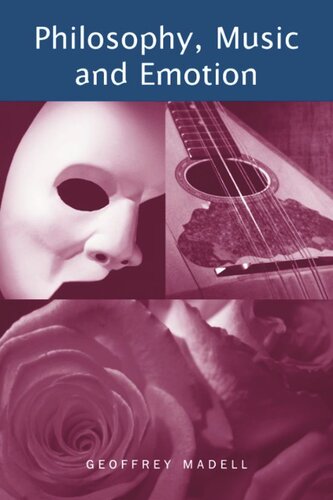

Most ebook files are in PDF format, so you can easily read them using various software such as Foxit Reader or directly on the Google Chrome browser.
Some ebook files are released by publishers in other formats such as .awz, .mobi, .epub, .fb2, etc. You may need to install specific software to read these formats on mobile/PC, such as Calibre.
Please read the tutorial at this link: https://ebookbell.com/faq
We offer FREE conversion to the popular formats you request; however, this may take some time. Therefore, right after payment, please email us, and we will try to provide the service as quickly as possible.
For some exceptional file formats or broken links (if any), please refrain from opening any disputes. Instead, email us first, and we will try to assist within a maximum of 6 hours.
EbookBell Team

5.0
90 reviewsPhilosophy, Music and Emotion explores two issues which have been intensively debated in contemporary philosophy: the nature of music's power to express emotion, and the nature of emotion itself. It shows how closely the two topics are related and provides a radically new account of what it means to say that music 'expresses emotion'.
Geoffrey Madell maintains that most current accounts of musical expressiveness are fundamentally misguided. He attributes this fact to the influence of a famous argument of the nineteenth-century critic Hanslick, and also to the dominant 'cognitivist' approach to the nature of emotion, which sees the essence of emotion to be the entertaining of evaluative judgements and beliefs of a certain sort, an account very much in accord with Hanslick's position. Such an approach results either in the unpersuasive view that musical expressiveness is somehow akin to human expressive gesture, or in the view that music arouses feelings which have no specific object and, unavoidably, no necessary connection with the music.
The book argues that the 'cognitivist' account of the nature of emotion is quite false and that it needs to be replaced with a conception of emotions as states of feeling towards - states of intentional feeling - whose objects are often evaluatively characterised states of affairs; however, in the context of the emotions that are aroused by music these objects are always musical events or states. Central to this bold analysis of emotion is a new account of two closely connected mental states, those of desire and of pleasure, and of what role these states have in human motivation and value.